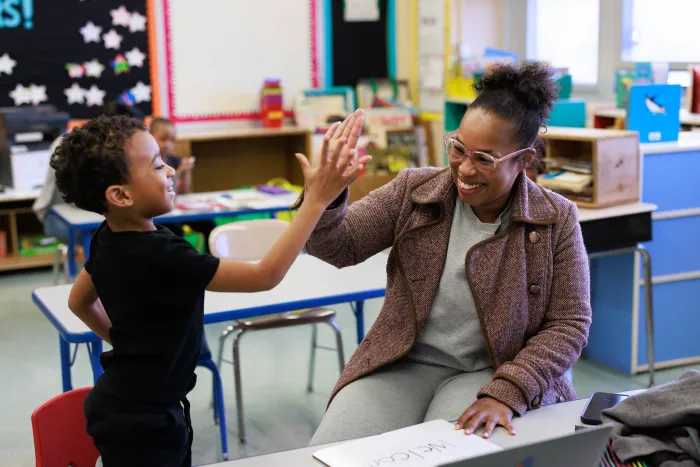In a move to achieve better support services for New York City preschoolers with disabilities, the City Council pushed for increased funding in the fiscal year 2026 adopted city budget, which went into effect at the beginning of July.
The additional $70 million in the budget for preschool-aged children with disabilities to receive their evaluations, therapy, counseling, and classes comes amid growing concern for the availability of these services, according to advocates and lawmakers.
Though the city’s Department of Education is required by law to provide specialized support services to preschool-aged children with disabilities, budgetary constraints and staffing shortages have resulted in some young families waiting months for services — an issue that has existed for years but has compounded recently.
“We have been hearing from family after family having difficulty getting the preschool special education services that their children need and have a legal right to receive,” said Randi Levine, the policy director at Advocates for Children of New York. “When a parent is concerned about their child, they want their child to get help right away, but the shortages in New York City have made it extremely difficult for children and families to get the support they need.”
Even if young students with disabilities receive their accommodations eventually, extended periods of going without services can lead to learning loss, Levine said.
“We’ve heard parents talking about losing skills,” Levine said. “Children who received services when they were toddlers and then, when they turned three and were getting preschool special education services, went months without those services and lost some of the skills that they had gained previously.”
In its effort to ensure preschoolers with disabilities are properly evaluated and supported in a timely manner, the City Council hopes that the $70 million will alleviate some of the stressors on the city’s educational system. Council Member Rita Joseph (D-Brooklyn), chair of the council’s education committee, said the new funding is “a great starting point” for progress in how the city serves preschool-aged children with disabilities.
“We know that we needed to make progress, especially around our special education students,” Joseph said. “You cannot have special preschool, special education and not have services.”
In May, the NYC Department of Education testified at a hearing chaired by Joseph that 7,156 preschoolers with disabilities — about 30% of NYC’s preschoolers with disabilities — were missing one or more of their mandated services, such as speech therapy or counseling. The department testified that 3,729 were missing all of their legally mandated services and that 616 preschoolers with disabilities were still waiting for seats in special education classes.
At the May hearing, the department testified to the need to hire hundreds of service providers and evaluators for preschoolers to ease the crisis. Joseph said the council has been pushing City Hall leadership to prioritize the issue, which led to the $70 million in funding in the adopted budget.
“Every chance I had face time with [city administration], I reminded them what was on the line. These are legally mandated services. These are required by law. This wasn’t an option,” Joseph said. “So the administration knew very well that those services were needed.”
These support services are crucial to keeping young families in the city, Levine said, urging the city to live up to its Pre-K and 3-K For All education programs that seek to ensure all NYC children have equal access to school.
“If we want young families in New York City, we have to stop making them fight for the special education services and support their children need and have the right to receive,” Levine said. “We are hopeful that this funding will make a significant difference in helping thousands of children get the services they need, and moving 3-K and Pre-K closer to being truly for all.”
































